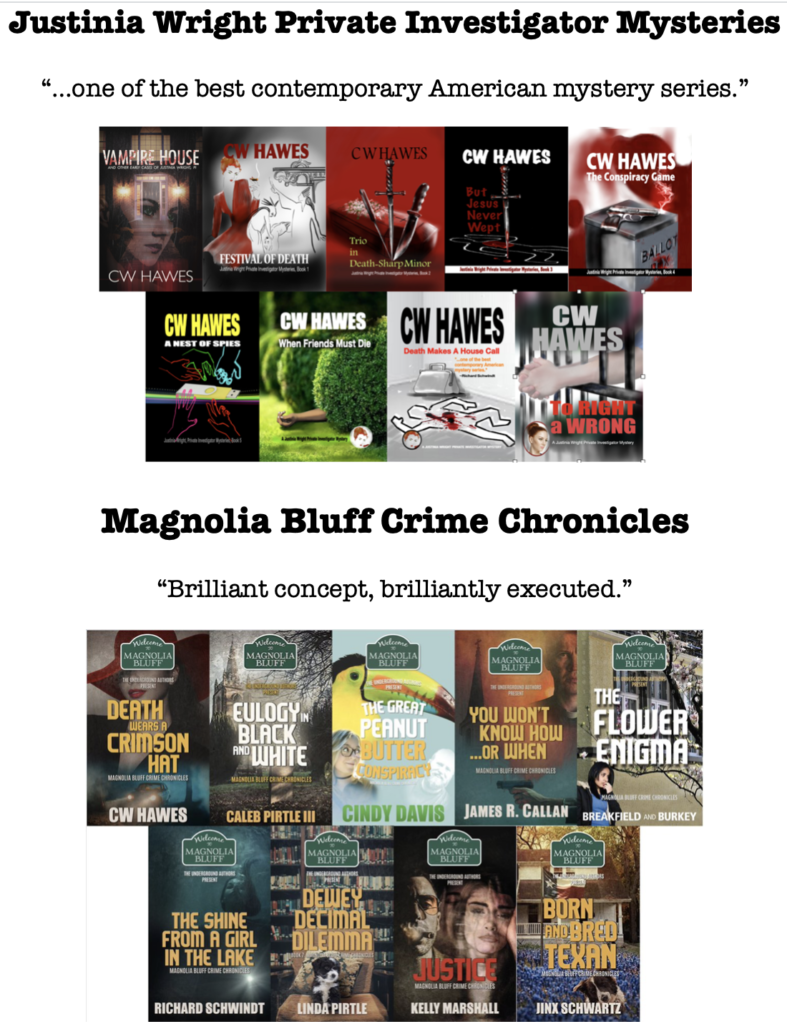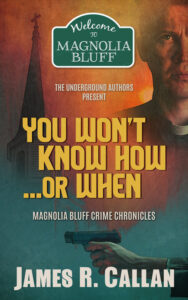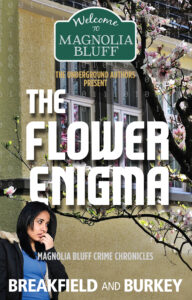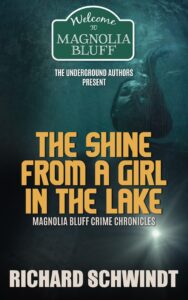Today, I have the honor of talking with the Reverend Ember Cole, pastor of Saint Luke’s Methodist Church in beautiful Magnolia Bluff, Texas. The home base for the Magnolia Bluff Crime Chronicles.
CW: Welcome, Ember. Glad you can be with me here today on the blog.
EC: My pleasure, CW. Thanks for inviting me.
CW: So to start, why do you wear a Catholic hat?
EC: (laughs) It’s easily recognized as religious, and with the clerical collar immediately marks me as a person of the cloth. And because women ministers are still something of a rare breed, that helps me in my ministry.
CW: Makes sense. To go one further, why did you choose the ministry for a career?
EC: I don’t think of the ministry as a career. I see it as a life of service to my fellow human beings.
CW: What kind of service?
EC: To help them with both their physical and spiritual needs. Especially the spiritual. To borrow a turn of phrase from my evangelical colleagues, we all have a God-size hole in us. And we too often fill it with everything but God. But only God really fits. It’s the square peg, round hole thing.
CW: Gotcha. So you don’t consider yourself an evangelical?
EC: Not in the sense they mean by it. I believe we should tell people about Jesus and encourage them to believe, so I’m evangelical in that sense of the word. But I don’t accept the other things they believe.
CW: Such as?
EC: The verbal and plenary inspiration of the scriptures. The virgin birth. And very recently, I’ve started to doubt if there even was an actual physical Jesus.
CW: Whoa, Reverend! No Jesus?
EC: (laughs) Yeah, that’s a bit of a shocker, isn’t it?
CW: I mean, like, how did everything get started if there wasn’t a Jesus to kick things off?
EC: Oh, there was somebody. It was Peter. Paul quite clearly says Jesus first appeared to Peter. Then after Peter, Jesus went on to appear to many others.
CW: Wait a minute. Are we talking about a spiritual Jesus here?
EC: In a sense, yes. You see, the idea is that God created Jesus, you know, the Word, and through the Word all things came into being.
Then Satan rebelled and God kicked him out of heaven, which the ancients thought was the most distant sphere from us. We’d think of their spheres surrounding the earth as dimensions or parallel universes. So Satan came to our dimension.
Then God sent Jesus to our dimension, but not physically to earth. He appeared in Satan’s realm, which the ancients thought was up by the moon. Today, it makes more sense to think of it as another dimension, or a parallel universe.
CW: Okay, so Jesus moves from God’s dimension to Satan’s dimension.
EC: Right. At least something like that. Using our contemporary understanding.
CW: Okay. So Jesus is now hanging out with Satan.
EC: (laughs) Something like that. Then Jesus lets Satan kill Him. After which, Jesus rose from the dead, and first appeared to Peter. In a dream, maybe. Or a vision. Lastly, He appeared to Paul in a vision.
CW: That’s… That’s… Wow, that’s different. And all this happened not on earth, but in another dimension.
EC: Right.
CW: Mind boggling.
EC: But it is what Paul wrote and taught. And Paul’s genuine letters are the first Christian writings that we have. Paul never mentions talking to an eyewitness, nor does he ever mention Jesus’s birth or His family. What Paul does write is that all, and I repeat, all of the information he got was by visions or through the scriptures. Never an eyewitness to an earthly Jesus. And if we think about it, why wouldn’t he if such a witness existed? But Paul never does. Only visions and scripture. And those make sense only if Jesus was never here on earth in the first place.
CW: Huh. That isn’t what I learned in seminary. And the Methodist Church is okay with you believing this view?
EC: You went to seminary? Well, that’s interesting. I wonder…
CW: That was a lifetime ago. But what about your bishop? What does he think?
EC: Well, the church probably isn’t okay with it. And my bishop doesn’t know. You’re the first person I’ve told about this. But then you…
CW: Nope. I’m just an amanuensis. So this is news to me.
EC: But aren’t you the writer?
CW: Amanuensis. I receive and write down. Like Paul.
EC: (giggles) That’s funny. Because I do believe in visions and dreams. In a sense, you might say I’m something of a charismatic Methodist. Part of the Third Wave.
CW: And your bishop is okay with that?
EC: Probably not. But what he doesn’t know won’t hurt him. Or me.
CW: Oh, clever you!
EC: In spite of what Harry thinks, I’m not completely naïve when it comes to politics. (smiles)
CW: And everything is politics.
EC: That it is.
CW: And speaking of politics, is Mary Lou Fight still after you?
EC: Yes. She’d like to come back to Saint Luke’s, but won’t as long as I’m there. So she’s still exploring ways to get me out.
CW: Does that bother you?
EC: Not really. I mean, yes, it’s frustrating. And it annoys the hell out of me at times.
CW: Wait. Did you just say hell?
EC: I did. You’ve never heard a minister ever say hell before?
CW: I was Baptist, so yes I have. Sorry. You were saying?
EC: Mary Lou is my cross to bear, so to speak.
CW: Even though you don’t believe there was a literal cross.
EC: (smiles) Yeah. Funny how the historicist and literalist views have influenced out language.
CW: Yes, it is.
EC: I very much feel sorry for Mary Lou. She is a miserable person at heart. If any one needs the love of Jesus, it is that woman. And I hope she finds it.
CW: Do you have a motto or mantra that keeps you going throughout the day?
EC: I do. Paul’s words in Romans chapter eight, verse twenty-eight: “…all things work together for good to those who love God, to those who are the called according to His purpose.”
CW: That’s a very good verse. Very positive. Optimistic.
EC: It is.
CW: I know this last question might sound morbid, but I always tell myself momento mori, remember you will die. It’s a great guiding principle to help keep things in perspective.
EC: It is.
CW: So, how would you like to die?
EC: Oh, that’s easy. In the arms of my lover.
CW: Harry?
EC: Well, that would be nice. But I was actually referring to Jesus.
CW: Oh, wow. Yeah, okay. I can see that.
EC: (singing)
Jesus, lover of my soul,
Let me to thy bosom fly
While the nearer waters roll,
While the tempest still is high.
Hide me, O my Saviour, hide,
Till the storm of life is past;
Safe into the haven guide,
O receive my soul at last.
CW: That’s a great hymn.
EC: It is. I also love the lines in the third stanza: “Thou, O Christ, art all I want; more than all in Thee I find.”
CW: Yeah. You, Ember Cole, are a woman of tremendous faith. Magnolia Bluff is fortunate to have you. Thanks for being on the blog.
EC: Thanks for having me. And may Christ be with you.
CW: And also with you. And if you have any questions for Rev Em, drop them in the comments below.
Comments are always welcome! And until next time, happy reading!
 CW Hawes is a playwright; award-winning poet; and a fictioneer, with a bestselling novel. He’s also an armchair philosopher, political theorist, social commentator, and traveler. He loves a good cup of tea and agrees that everything’s better with pizza.
CW Hawes is a playwright; award-winning poet; and a fictioneer, with a bestselling novel. He’s also an armchair philosopher, political theorist, social commentator, and traveler. He loves a good cup of tea and agrees that everything’s better with pizza.
If you enjoyed this post, please consider buying me a cup of tea. Thanks! PayPal.me/CWHawes
Justinia Wright Private Investigator Mysteries on Amazon!
Magnolia Bluff Crime Chronicles on Amazon!
Share This!





